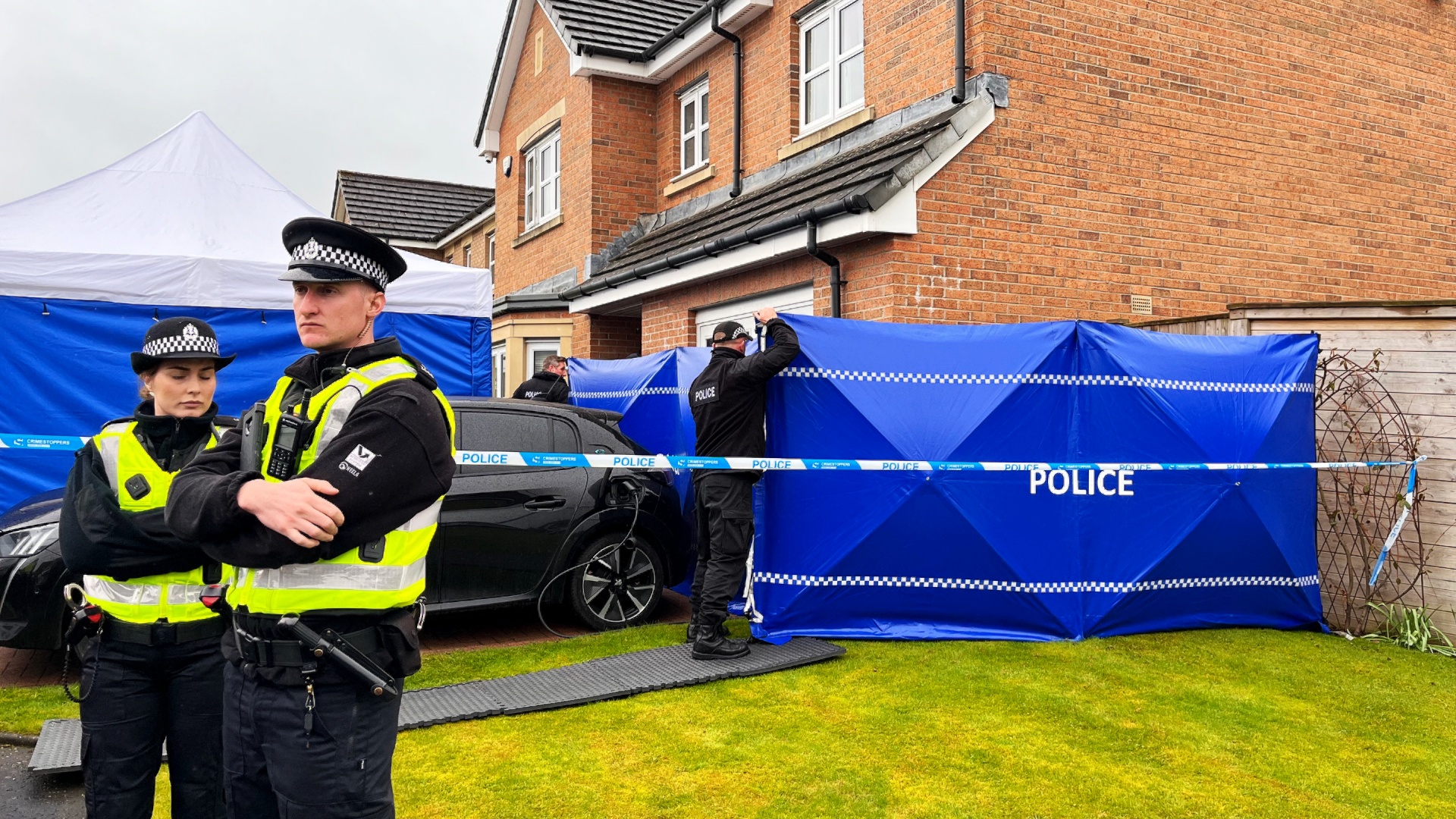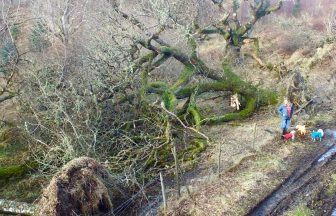Former SNP chief executive Peter Murrell is being questioned by police after being arrested and taken into custody on Wednesday morning.
The development comes as part of an ongoing investigation into the party’s finances, with Police Scotland and the Crown Office probing the spending of £600,000 of funding raised by the SNP for campaigning purposes.
Murrell’s arrest is the latest episode in a dramatic few months for Scotland’s ruling party.
The 58-year-old resigned as chief executive of the SNP last month following a row over the disclosure of membership numbers during the party’s recent leadership contest, won by Humza Yousaf.
His resignation came just hours after the party’s communications director, Murray Foote, quit after being told “false information” over the number of people eligible to vote on Nicola Sturgeon’s successor at Holyrood.
Sturgeon, who said her husband was “right” to announce his immediate resignation, announced her resignation as first minister in February.
In March, Sturgeon told ITV she had not heard if police wanted to interview her or her husband as part of the investigation into the party’s finances.
‘Premier political power couple’
Until Sturgeon’s resignation, she and Murrell were Scotland’s premier political power couple.
He had been at the helm of the party since 1999, when he took over from the first holder of the role, Michael Russell.
The party official had previously worked in the Banff and Buchan constituency office of the former SNP leader, Alex Salmond.
Sturgeon and Murrell met through their work with the SNP in the late 1980s, and were first announced to be in a relationship in early 2003.
They married in 2010 in Glasgow, while Sturgeon was deputy leader of the party and serving as the Scottish Government’s health secretary.
Rise through the ranks
During Murrell’s 20-year stint at the helm of the party, Sturgeon – who is six years his junior – rose through the ranks after first being elected to the Scottish Parliament in 1999.
She unsuccessfully stood for leader in 2004, before agreeing to a joint ticket with Salmond, standing as his deputy.
The SNP won power as a minority government in 2007, often attributed to Murrell’s organisational skills, and made huge electoral gains in the 2011 election.
After Salmond’s resignation in 2014 following the result of the independence referendum, Sturgeon was elected unopposed as successor.
Questions raised about relationship
Questions were raised at the time about the close working and personal relationship between husband and wife, but they insisted there was a strict division of power within the party’s governance.
After eight years in the top job, Sturgeon announced her intention to stand down as first minister in February, with Murrell following suit as the race to choose the next Scottish premier ensued.
When she stood down, Sturgeon insisted the row surrounding transgender rights was not the “final straw” but said it was “time for someone else” to lead the party.
“This decision comes from a deeper and longer-term assessment,” she said.
What happened on Wednesday?
 STV News
STV NewsMurrell was taken into custody as a suspect in connection with an ongoing police investigation into the SNP’s finances.
Neighbours say officers arrived at the house where he lives with Sturgeon at around 8.30am on Wednesday morning.
A blue tent has been erected outside the property and the curtains and blinds remain closed, as officers have been coming and going throughout the day.
There is also a large police presence outside the SNP’s headquarters in Edinburgh – several vans are parked outside and a number of officers have been seen going into the building.
What has been said?
First Minister Humza Yousaf said it was a “difficult day” for the SNP but said he would not comment on “a live police investigation”.
“People will have questions, there will be some concerns. Our party membership will have concerns too,” he said.
“What I can commit to as party leader is that we want to be absolutely transparent.”
Police Scotland warned the public that legal proceedings were active meaning the Contempt of Court Act 1981 was in effect.
“The public are therefore advised to exercise caution if discussing it on social media,” a Police Scotland spokesperson said.
Follow STV News on WhatsApp
Scan the QR code on your mobile device for all the latest news from around the country




























